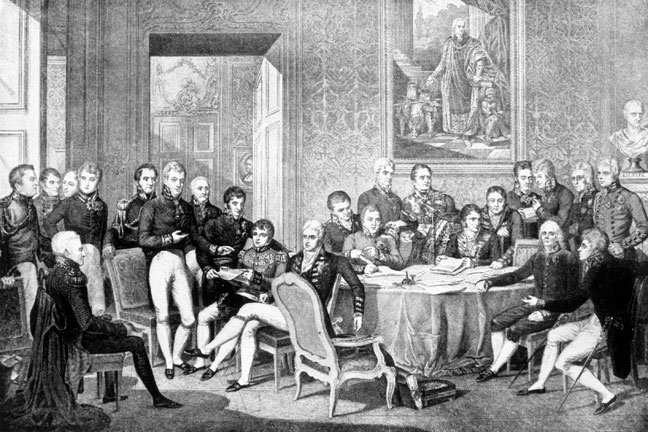

(The previous years had been no exception, since the French Empire had prompted the creation of continental coalitions.) As soon as Napoleon was defeated, mistrusts and rivalries resurfaced almost immediately. Europe had long been divided along two military alliances, a phenomenon then called the “balance of power”-alliances changed, but there had always been two opposed blocs. Hence the continent, and particularly Germany, was in a state of political chaos. After a French Revolution and twenty years of war, the borders of many States had been arbitrarily changed, and some had even been effaced from the map.
CONGRESS VIENNA HOW TO
The question then was how to rebuild a new European order: this was the task of the Congress of Vienna, which took place from September 1814 to June 1815. It was their turn to write the treaties as they pleased the French plenipotentiaries could not help but bow and sign them. In the end, the Allies occupied Paris in May of the following year.

Most of all, his invasion of Russia ended in a dismal debacle, and was followed by a lightning-fast Russian counteroffensive into the heart of Germany, culminating in the Battle of Leipzig of October 1813 (also called Battle of the Nations). Napoleon’s campaigns were costly both in human and economic terms for France, and for Europe in general. War is, however, a risky affair and it tends to attract retribution. Applying the principle that “might makes right”, he obtained satisfaction for all his claims, including the hand of the daughter of the Emperor of Austria. Undoubtedly, the Emperor of the French used this form of argumentation effectively against two of the great powers of the time, Austria and Prussia: with two fast campaigns in 18, he decisively defeated the first, and effaced the second from the map. For him, as Carl von Clausewitz would later write: “War is an act of violence intended to compel the opponent to fulfill one’s will”. Napoleon engaged in his own campaigns of invasion deliberately, and with cold-blooded determination. All three were applied in Europe in the post-Napoleonic era and in that order. Its bicentenary in 2014-15 is a useful opportunity to reflect on a question that has come back to the fore with the current crisis in Ukraine: when strong differences arise between two or more powers, what is the most effective and least costly way to resolve them? In the absence of effective international arbitration, three methods have been traditionally used: war (as a judicial duel), the balance of power (two military blocs that mutually neutralize each other, by fear of an open conflict), and conference diplomacy. In particular, the experience of the Congress of Vienna after the fall of Napoleon Bonaparte was a watershed in international relations.

Unfortunately, international relations do not follow a uniform path of progress there is, of course, no “end to history”. This shift may seem even more surprising, because the new order that had rapidly emerged after the end of the cold war, with its regular conferences and summits, had become the order of the day. Following the civil war in eastern Ukraine and the incorporation of Crimea by the Russian Federation, the continent is experiencing a reversal from a system of consensus into a system that is more reminiscent of the past opposition between NATO and the Warsaw Pact. The year 2014 will be remembered as a transitional year in the political climate of Europe.


 0 kommentar(er)
0 kommentar(er)
